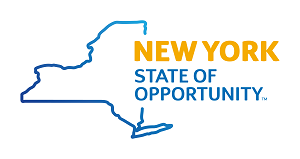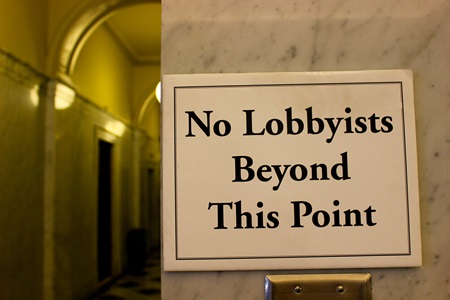
Fast, affordable Internet access for all.

Language added to a New York State budget bill is threatening to undermine a municipal broadband grant program established by Gov. Kathy Hochul’s office earlier this year.
Known as the Municipal Infrastructure Program, it was designed to provide grant funding for municipalities in the state eager to build publicly-owned, locally controlled broadband infrastructure as a way to ensure ubiquitous, affordable access to high-quality Internet after decades of frustration with expensive, spotty and uneven service from the regional monopolies.
Currently, New York state lawmakers are in the midst of budget proposal season in which the Governor’s office and both legislative chambers (the state Senate and Assembly) have until April 1 to reconcile and complete a final budget for the upcoming fiscal year.
Buried near the bottom of the Assembly budget proposal (A8805B) is a Trojan horse legislative sources say is being pushed by lobbyists representing Charter Spectrum, the regional cable monopoly and 2nd largest cable company in the U.S. that was nearly kicked out of New York by state officials in 2018 for atrocious service.

On page 71 (part FF) of the bill is a provision that takes aim at a recently passed law that is part of the Hochul administration’s ConnectALL Initiative. The ConnectALL Initiative was launched in 2022 to administer the Empire State’s broadband expansion plan and the disbursement of a billion dollar federal windfall from the American Rescue Plan Act and bipartisan infrastructure law.
The seemingly innocuous language begins by affirming how the “ConnectAll municipal assistance program is hereby established to provide grant funding to municipalities, state and local authorities, and entities established pursuant to section 99-y of the general municipal law to plan and construct infrastructure necessary to provide broadband services…”
If passed, the language goes on to say, MIP grant funds would be limited to municipal broadband projects that target “UNSERVED AND UNDERSERVED LOCATIONS ONLY.”
Key word: “ONLY.”
Given that most communities (save the most remote rural enclaves) are at least partially “served” by a monopoly incumbent, should that part of the proposed Assembly budget make it into the final budget it would effectively extinguish the spirit of the program and make many, if not all, proposed municipal broadband projects in the state unable to become financially viable.
An Attempt To Dismantle New York’s Municipal Broadband Program
As Assembly Member Anna Kelles, who represents the 125th Assembly District, tells ILSR:
“The Assembly budget language would dismantle current state efforts to build a sustainable business model for municipal broadband in New York State. My legislative partner Senator Rachel May and I have spent the last few years updating our state’s laws to guarantee that local governments have the option to offer high-speed Internet to their constituencies. In places that have deployed a municipal broadband model, prices across the board decrease while service levels increase.”
Representing a district that includes the Town of Dryden, Kelles points to the municipal broadband project local officials there have “been working tirelessly to move ahead” as an example of what the proposed budget language would prevent other communities from pursuing.
“The legal infrastructure we’ve built at the state level combined with the federal funding made available through ARPA and the Bipartisan Infrastructure Act are all critical to achieving the goal laid out by the Town of Dryden and parallel efforts across the state,” she said.
“This budget language would effectively undermine these efforts and ensure a continued monopoly by private providers. It would make sustainable municipal broadband financially unviable and it very well may make New York ineligible for federal funds.”
Kelles went on to say that it was important for New York state lawmakers to “ensure the legislation that is included in the final budget protects New Yorkers right to choice in broadband providers thus ensuring affordability and accessibility for all.”
Same Old Monopoly Playbook
While there is no smoking gun tying the proposed language to Charter, it’s exactly the kind of back-room legislative maneuvering that just so happens to protect monopoly incumbents from competition that we have seen time and time again, most recently in Ohio where a last-minute anonymous budget amendment was filed in 2021 to outright ban municipal broadband.
However, when the Ohio budget amendment was exposed to the light of day by tireless local advocates, including the town of Fairlawn, state lawmakers were deluged with a flurry of calls, emails, and letters from local officials and angry constituents, which ultimately led to the defeat of the Ohio budget amendment. In that case, Republicans in leadership worked with Democrats to ensure Ohio towns were not hamstrung by the bill.

While the New York Assembly budget proposal is not as blatantly pro-monopoly as the Ohio budget amendment was, if passed, it would severely hamper municipal broadband in New York.
The reason is simple: there is no accurate data set of where unserved and underserved locations actually are, and no data on reliability or affordability. The only available data is the FCC's availability maps, based on self-reported data that is widely agreed to be deeply flawed. As a result, most towns would be limited to the areas that Charter admitted to not covering well, leaving municipal broadband projects with not enough serviceable locations to sustain a viable business plan.
The Legislature’s goal to ensure the funds are used in the areas that most need service is one shared by lawmakers around the United States. Unfortunately – in part due to decades of lobbying the FCC by companies like Charter Spectrum – the U.S. has no accurate data set of where broadband Internet access is actually available on reasonable terms.
As we covered in 2022, the Treasury Department itself originally planned to limit Rescue Plan funds only to unserved and underserved areas. However, after hearing from many elected officials across the country, they removed that limitation out of recognition that it would effectively prevent investment in almost any urban or suburban area – not because those areas were well covered, but because the federal government and states lack the nuanced data to distinguish between areas that are actually well served and those that aren’t. They decided to trust local communities to make those distinctions.
Given that both the Governor’s and Senate budget proposal does not include blatant anti-competition language, there’s a good chance the Assembly budget amendment won’t survive the reconciliation process. Still, it doesn’t help that these types of issues are not deemed sexy enough by most media outlets to report on, even though municipal broadband has been shown to offer more reliable, less expensive service than what monopoly providers offer.
As unprecedented sums of federal funds are being made available as part of a national "Internet For All" initiative, municipal broadband advocates in other states would be wise to remain vigilant of other under-the-radar attempts by monopoly incumbent lobbyists to stifle competition and block municipalities from accessing broadband grant funds.
Below you can watch a video of a recent panel on the pilot programs that informed New York's Municipal Infrastructure Program:
Header image of New York State Capitol and Empire State Plaza courtesy of Darren McGee/New York State Governor’s Office
Inline image of No Lobbyists sign courtesy of Wikimedia Commons, Attribution 2.0 Generic
